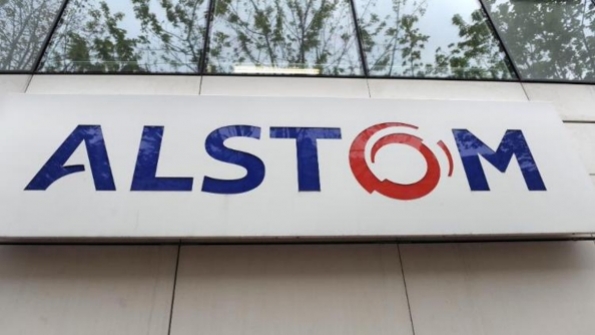Chop or change

IT NEVER rains but it pours, at least where Alstom, a French engineering giant with global operations in power generation and transport, is concerned. Last week America’s GE put in a formal bid for Alstom’s energy arm, offering around $10 billion. Then on Saturday night Siemens came up with a proposition of its own: an asset swap. Alstom would cede to Siemens its power-generation activities and in exchange take over Siemens’s German high-speed rail and locomotives (plus an unspecified amount of cash). The idea has some appeal: Alstom virtually fathered high-speed rail, or TGV, in Europe. The idea is to build two European giants, one in transport and the other in energy.
No bid
involving a prominent French company would be complete without the
country’s economy minister making his view of the matter plain. On
Sunday afternoon Arnaud Montebourg said that the government intended to
examine both offers carefully with a view to maintaining the country’s
industrial fabric, and might even participate financially itself. Jobs,
investment, research and decision-making centres must remain in France.
The ownership of Alstom’s nuclear-power activities is believed to be a
particularly sensitive point.
Siemens has yet to make a
firm bid, as it has not had access to Alstom’s books. But the German
firm (which, like GE, already operates in France) has reportedly pledged
not to fire anyone for three years. It is also said to be willing to
spin out the manufacture of nuclear turbines to another French company,
probably EDF or Areva. GE’s nuclear partner is Hitachi, a competitor of
Areva, the German firm notes.
There is a breathlessness
in all this as chief executives leap on planes and doors bang in the
president’s office at the Élysée Palace and the economics ministry at
Bercy. Earlier this month Mr Montebourg tried and failed to influence a
takeover battle for SFR, France’s second-biggest telecoms company. Two
weeks ago Lafarge, a big cement firm, agreed to be bought by a Swiss
competitor. Now the minister is doing his best to throw sand in the
wheels of a GE deal, which less than a day ago looked all but done. “GE
and Alstom have their calendar which reflects the needs of their
shareholders, but the French government has its own timetable, which is
that of economic sovereignty,” he said.
In fact, some
such asset-shedding by Alstom has been on the cards for at least half a
year. Alstom returned to profit in 2007 from four catastrophic years in
the red, but has been struggling to make much money on its €20 billion
($28 billion) annual turnover. Its biggest sector, thermal energy, is
also the most profitable (renewables are another story). But the company
is very dependent on large orders, and governments, which make most of
these, have been deferring big projects. Customers are also more
reluctant than before to pay for projects up front and Alstom struggles
to get attractive financing.
In November, when the
company announced its half-year earnings (its financial year, unusually,
runs from April through March), Alstom revealed negative free cashflow
of €511m, but stressed its fat order book. Three months later it showed
an order book for the first nine months 12% down on the same period a
year earlier and predicted that cashflow would remain negative for the
year as a whole. A restructuring plan is supposed to lop up to €1.5
billion a year off its costs by April 2016. Alstom said in November that
it was planning to dispose of non-strategic assets and would study
selling a minority stake in Alstom Transport to an industrial partner or
to financial investors, targeting proceeds of €1 billion-2 billion by
December 2014.
In the event it is Alstom’s energy arm
that seems the more attractive. In February GE suggested buying it but
the matter did not prosper. It seems that Siemens also approached Alstom
that month, but things went even less swimmingly, in part because the
likelihood of staff lay-offs looked greater. But if Alstom sees the
chance of strengthening the transport side of its business, not just
disposing of the energy side, the forward-looking deal could be more
appealing.
There is a a curious footnote to the Alstom
deal—which could, but probably won’t, turn out to be as bitterly
contested as the fight over SFR. Numericable, a cable group, won that
battle, much to Mr Montebourg’s chagrin, and Bouygues, a diversified
industrial group, did not. Bouygues is Alstom’s principal shareholder,
with just under 30% of the stock. The stake has been doing Bouygues
precious little good. Word is that the group is keen to see Alstom
remedy matters by unloading some assets quickly.
Update: On Sunday night Alstom said it would make an announcement about the offers on Wednesday April 30th. Trading in its shares is suspended until then.
(Photo credit: AFP
nagesh dubey pgdm
nagesh dubey pgdm
No comments:
Post a Comment